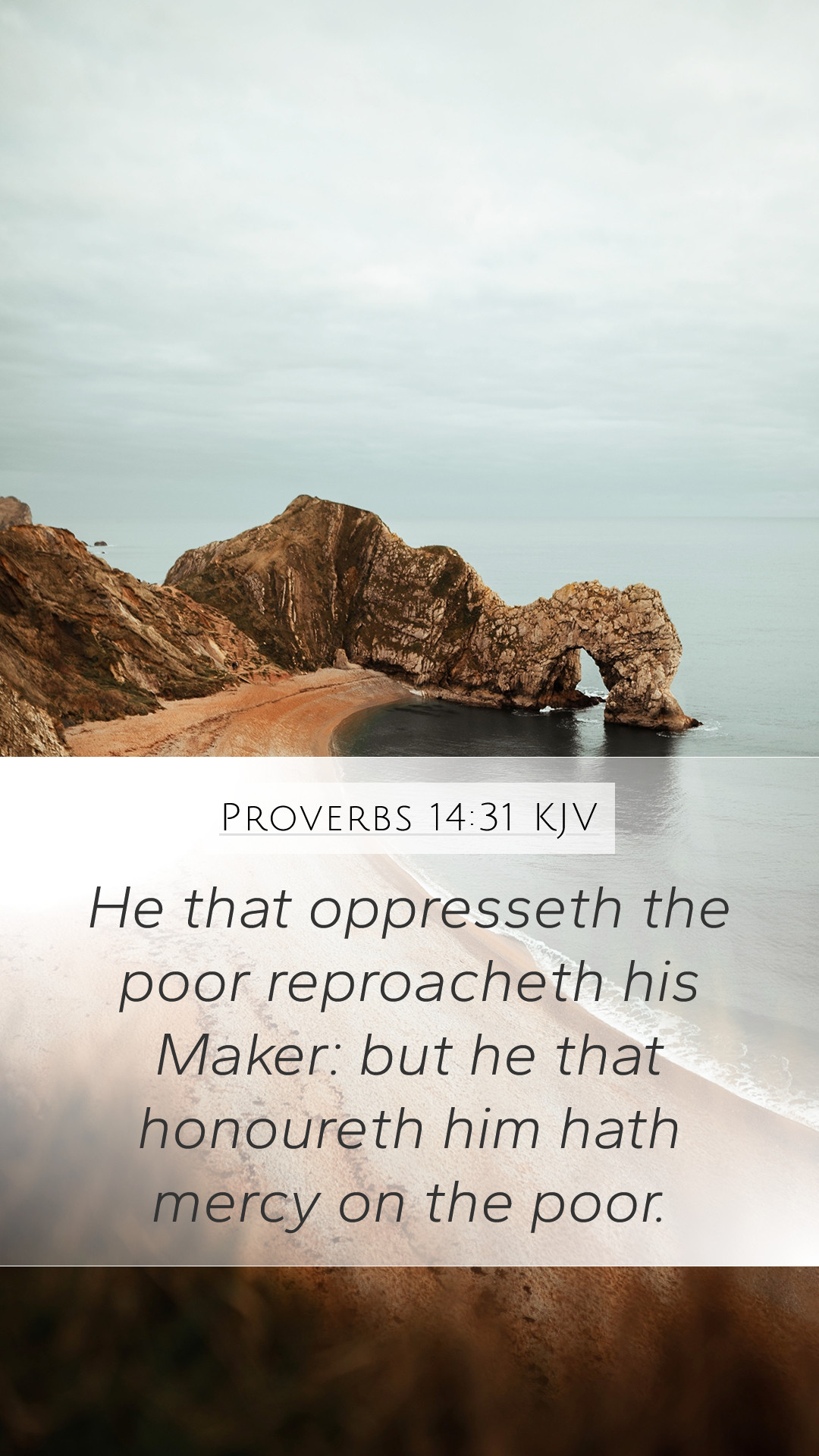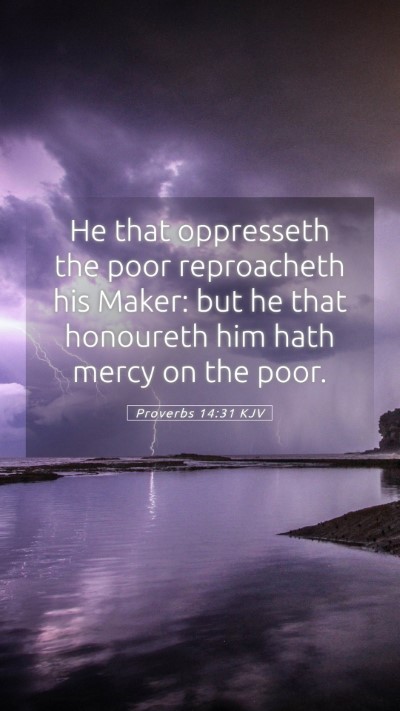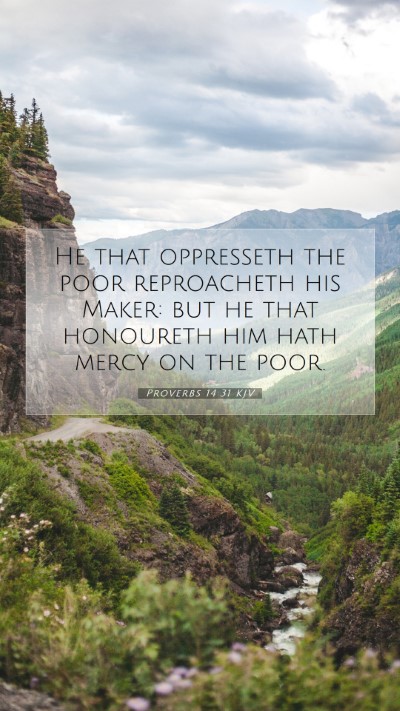Understanding Proverbs 14:31
Proverbs 14:31 states: "He who oppresses the poor reproaches his Maker, but he who honors Him has mercy on the needy." This verse encapsulates a profound moral lesson that addresses our treatment of the less fortunate and emphasizes the relationship between our actions towards others and our standing before God.
Bible Verse Meanings
In this proverb, King Solomon reflects on the ethical implications of how individuals treat the poor.
-
Oppression of the Poor: Matthew Henry comments that oppressing the poor is an affront to God Himself. It demonstrates a lack of reverence and respect for the Creator, for the poor are made in His image.
-
Honoring God: To honor God is reflected in one's compassionate acts toward the needy. Albert Barnes notes that when we show mercy to the needy, we are essentially fulfilling the command to love our neighbor and reflect God's character.
-
Justice and Mercy: Adam Clarke emphasizes the balance between justice and mercy. Honoring God through acts of kindness reflects an understanding of divine justice that values every life.
-
God’s Mercy to Us: The verse implies that if we show mercy, we too will receive mercy from God, as echoed in broader scripture in Matthew 5:7: "Blessed are the merciful, for they will be shown mercy."
Bible Verse Interpretations
Interpreting this verse requires us to consider the broader context of biblical teachings on wealth, poverty, and divine justice.
-
Theological Implication: This verse emphasizes that our treatment of others, especially the marginalized, is a clear indicator of our relationship with God.
-
Social Responsibility: This highlights a social responsibility towards the poor, a recurring theme in the Old Testament that reminds us of the importance of helping those in need.
-
Spiritual Accountability: Proverbs speaks to the notion that we will be held accountable for how we treat the less fortunate. As reflected in James 2:5, God has chosen the poor to be rich in faith.
Bible Verse Understanding
To understand Proverbs 14:31, we must acknowledge its call for empathy and compassion within the framework of our faith.
-
Understanding Human Dignity: Each individual is created in God's image and deserves dignity. Ignoring the plight of the poor contradicts our understanding of humanity's divine value.
-
Character of God: The nature of God involves mercy and justice, and reflecting these attributes in our lives is vital for spiritual growth and community health.
-
Role of Generosity: The verse encourages the practice of generosity, positioning it not just as an act of kindness but as a fundamental part of living a life that honors God.
Bible Verse Explanations
This verse serves as a moral compass guiding believers in their conduct towards others, especially the vulnerable.
-
Moral Responsibility: Believers are to carry the burden of moral responsibility toward the less fortunate, acting as stewards of God's grace.
-
Community Impact: A community that embraces the teachings of this verse fosters an environment where mercy, compassion, and justice thrive, benefiting all members.
-
Reflection of Faith: True faith is exhibited by one's actions; honoring God through service reflects an inward transformation and alignment with His character.
Bible Study Insights
Incorporating Proverbs 14:31 into a Bible study setting encourages introspection and practical application.
-
Discussion Topics: Engaging in discussions about the significance of helping the poor can unveil deeper insights about personal biases and community roles.
-
Application of Teachings: This verse can lead to practical action, encouraging individuals and groups to participate in outreach programs supporting the needy.
-
Reflection Questions: Questions can be framed around personal experiences of mercy and how they connect to one’s faith journey.
Cross References
This verse can be related to other scriptures that discuss the treatment of the poor and divine justice:
- Proverbs 19:17 - "Whoever is generous to the poor lends to the Lord, and he will repay him for his deed."
- Matthew 25:40 - "Truly, I say to you, as you did it to one of the least of these my brothers, you did it to me."
- Luke 6:38 - "Give, and it will be given to you. Good measure, pressed down, shaken together, running over, will be put into your lap."
Conclusion
Proverbs 14:31 stands as a testament to the intertwined relationship between faith and ethics in the context of social justice. It calls believers to recognize the value of the poor and issue a challenge to embody God's mercy through tangible acts of kindness.


